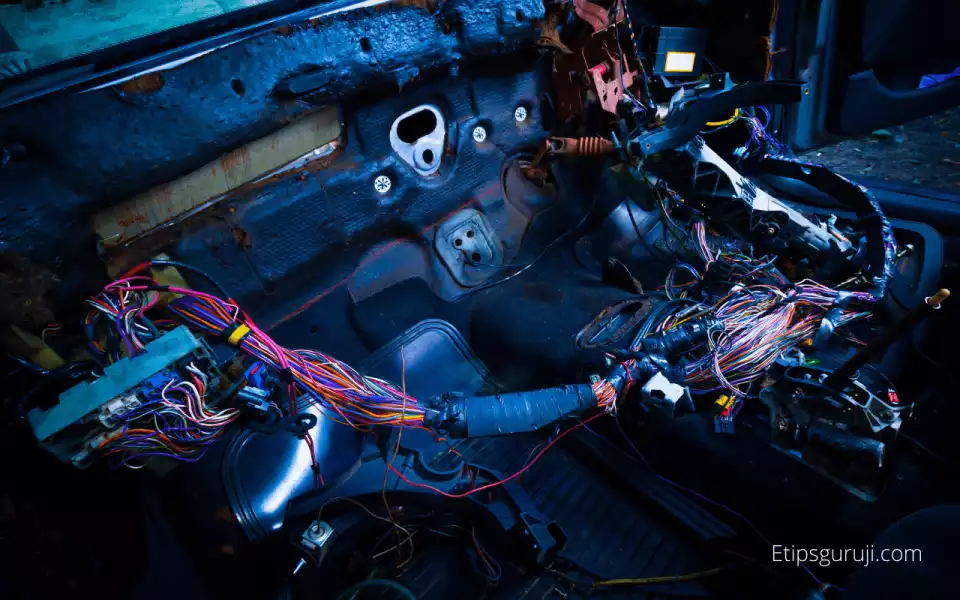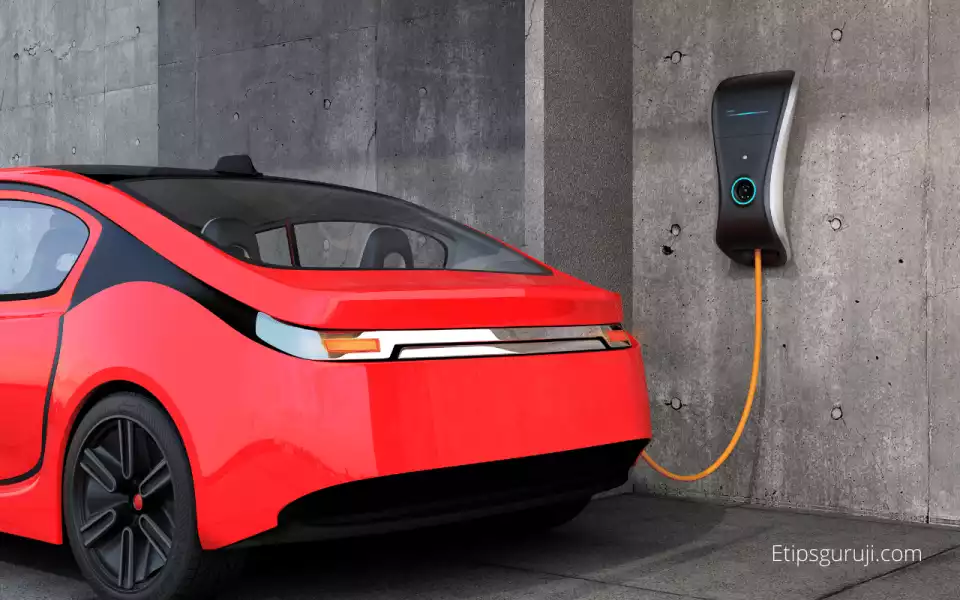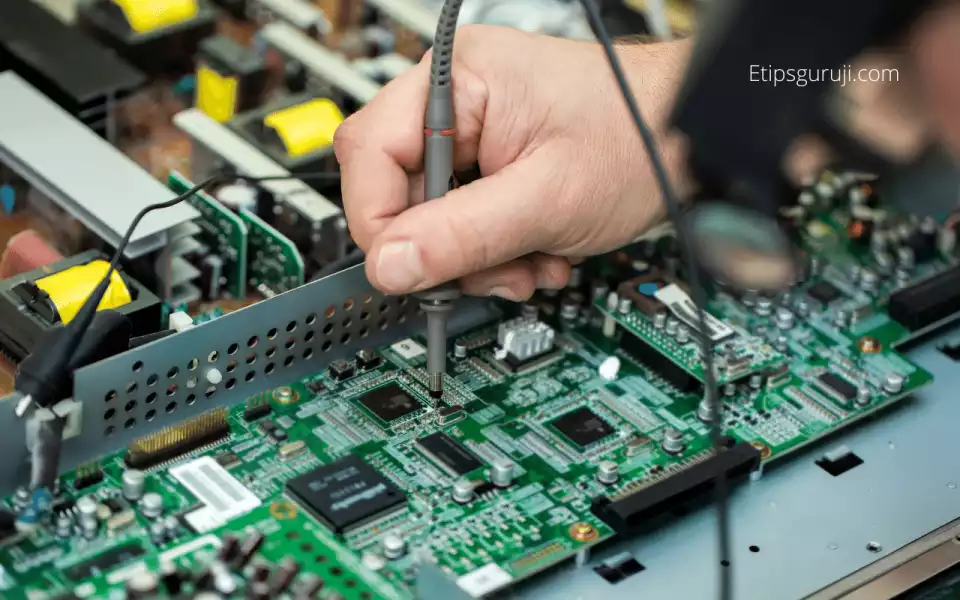7 Main Reasons Why Electric Vehicles Randomly Explode or Catch Fire?

In the following article, I’m going to mention some of the major reasons why electric vehicles catch fires or randomly explode?
1. Thermal Runaway Incidents

About 99% of EVs have Thermal Runaway incidents at any stage when they caught fire. Either Thermal Runaway is the cause to fire to erupt or any incident that disturbs the battery packing that further leads to thermal Runaway.
Thermal Runaway is defined as a rapid increase in the temperature of a lithium-ion battery that may cause a fire.
Half of the thermal runaways are due to manufacturing defects and the rest of them is due to:
- Cheaper materials can be considered as one of the major reasons.
- Poor material used in battery design.
- Additives that decrease the cost of production but decrease the life of the battery.
- Improper cell packing.
- Quick fix setup for batteries instead of replacing.
2. Internal Shortcircuts of Electric Vehicles

Fire in electric cars may also be due to internal short circuits. The main cause of internal short circuits is the use of cheap products during manufacturing. Common causes of the internal short circuit are:
- Non-standard metal wires.
- Poor conductivity and higher resistivity of wires.
- Cheap insulated wired.
- Use of low-grade flammable plastics.
- Non-standard testing of each unit.
3. EV Gets Damage in Accidents

Minor damage to EVs during accidents is sometimes overlooked by owners. These minor damages over time lead to drastic consequences. Damage to the battery and main circuitry can become one of the major reasons behind such fires in EVs.
It is a well-proven fact that EVs have a lower probability of catching fire compared to other fuel-run vehicles. But, if, in an accident, one of the EVs’ lithium-ion batteries short-circuits and overheats, it can result in a massive fire due to thermal runaway.
4. Overcharging the Battery

Batteries are smart so as the circuitry board that handles overcharge. However, there is a 1 in million chance that one of these security features gets damaged or defectively installed.
These overcharge protection system in EVs makes their owners more ignorant and careless. Owners of EVs often forget to plug out once the vehicle has been fully charged. This might be due to their busy schedule.
Cases have frequently been registered where the owners have accepted over-charging their EVs and facing ‘Thermal Runaway Incidents’ later on. So, it is better not to make a habit of overcharging your electric car’s battery.
5. Faulty BMS

Battery Management System (BMS) is the backbone of Electronic Vehicles. Any damage or defect to it may lead to a fire.
Following are the causes of fire in EVs related to the Battery Management System (BMS), which are subdivided into the following parts:
- Data acquisition: Stores data about the battery for the decision-making units and better monitoring. It involves storing current and voltage for the proper functioning of the battery cells.
- Cell balancing: Generally ‘Active Cell balancing’ and ‘Passive Cell Balancing’ is present in the EVs to handle small imbalances due to the inconsistency in the battery cells.
- Safety and protection Sensors: Application of different types of battery sensors to make sure that the battery cells are properly sealed and protected from any sort of damage like overcurrent, undercharge, temperature rise, etc.
- Thermal Management System: lithium-ion batteries used in EVs are very sensitive to temperature. It maintained the proper temperature range so that battery works at an efficient level of temperature. As higher the temperature, the lower the battery performance.
- Charge/Discharge Control: All batteries have a limited number of charge and discharge cycles. It monitors the charge/discharge cycle and makes changes and optimization for longer battery life.
- Battery State Estimation: accurate and timely monitoring of factors like State of Charge, State of Health, State of Power, and the State of Energy, is done by the system.
Thus, if any of the above parts of the Battery Management System gets damaged or carelessly handled by the manufacturing unit then that might lead to serious outcomes in the future and maybe a fire.
6. Bad Thermal Design

The thermal management system is a part of the BMS. As mentioned earlier, lithium-ion batteries used in EVs are sensitive to temperature.
A sudden hike in the temperature, short-circuit, or other reasons can ignite the battery cell. Hence, there are several cooling techniques to overpower this situation. Some of the most commonly used cooling techniques are:
- Air cooling of the battery
- Liquid cooling of battery, and
- Phase Change Material cooling.
Depending upon parameters like the operating condition of the battery, environmental conditions, types of the cell, packing system of the cells, and the perfect mode of cooling, selection of the battery cooling system is done.
Hence, a slight carelessness in the process can cause severe damage and can be the reason why EVs randomly explode or catch fires.
7. High External Heat and Direct Sunlight

Conditions like overcharge, undercurrent, and short-circuits are indeed major reasons behind the rise in internal Heat of lithium-ion batteries. But, external heat or environmental temperature can also be the reason for ‘Thermal Runaway Incidents’.
Unbearable heat, direct sunlight, and long drives during the summers may hike the temperature of Lithium-ion batteries.
Being sensitive to temperature, a sudden rise in the environmental temperature can have a significant impact on the functioning and efficiencies of lithium-ion batteries.
Thus, owners should park their EVs under shades or in comparatively cooler locations, or in the basement. One should avoid parking EVs in direct sunlight for not a long time if the environmental temperature is more than 40° C.
General FAQs:
1. Can an electric car catches fire on a ship?
Fire accident is EVs don’t bound to a place. It needs some technical defects or direct exposure of the battery to sunlight. However, they are pretty reliable and safe. The change of catching fire of electric cars on a ship is nearly the same as other petroleum cars.
2. How many electric cars catch fire every year?
According to the report, there are 26 per million EV cars that reported any incident of fire.
3. Do electric cars start a fire in parking?
Not necessarily. If parked under direct sunlight, especially in hot weather then excessive heat might break off fire in the batteries. The chances of getting fire are majorly when EVs are placed in high temperatures than 40° C along with other technical faults. High temperature along usually not be the reason for the fire.
Read More:
